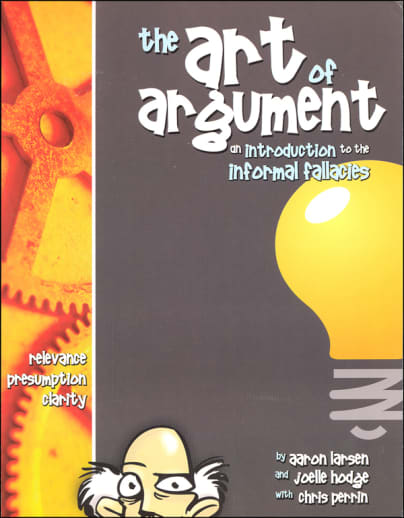Middle and high school students will argue (and sometimes quarrel), but they won't argue well without good training. Students who complete The Art of Argument will know how to reason with clarity, relevance, and purpose . . . and have fun along the way! They will study and master 28 logical fallacies, which will provide an essential lifetime framework for filtering good and bad reasoning as well as writing and speaking effectively. This mastery of informal logic is a foundational subject by which other subjects are evaluated, assessed, and learned.
The Art of Argument (Student Edition) features clear explanations and illustrations, along with dialogues, worksheets, and dialectic discussion questions, making this text easy to follow and engaging. The fallacies become relevant with practical applications through an analysis of current social, commercial, and political issues, as well as over 60 comical and clever phony advertisements. Fun extras are included, such as a humorous skit for students to perform and the famous short story "Love Is a Fallacy" by Max Shulman.
"My chief objection to a quarrel," G.K. Chesterton wrote, "is that it ends a good argument."
The Art of Argument Teacher's Edition and the Art of Argument Video are available as companion products. See our Support tab above for schedule recommendations.
This is a consumable item.

